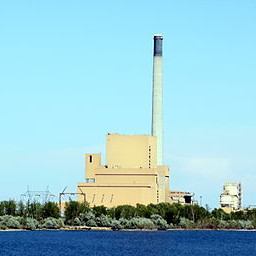Home/
Northwest Environmental Defense Center (NEDC)/
New Study Shows Mercury Controls Also Reduce Other Pollutants
February 28, 2016
New Study Shows Mercury Controls Also Reduce Other Pollutants
NEDC’s advocacy for mercury control technology at Oregon’s only coal-fired power plant has additional side-benefit of dramatically reducing other pollutants as well
Open gallery

<picture class="lw_image"> <source type="image/webp" srcset="/live/image/gid/106/width/1000/58843_boardman.rev.1456779122.webp 1x"/> <source type="image/jpeg" srcset="/live/image/gid/106/width/1000/58843_boardman.rev.1456779122.jpg 1x"/> <img src="/live/image/gid/106/width/1000/58843_boardman.rev.1456779122.jpg" width="440" height="256" alt="PGE's coal-fired power plant in Boardman, OR" data-max-w="440" data-max-h="256"/></picture>
PGE's coal-fired power plant in Boardman, OR
Several years ago, a new federal Clean Air Mercury Rule required that when the Title V permit for PGE Boardman, Oregon’s only coal-fired power plant, was up for renewal, the utility was to assess whether mercury capture and control technology was warranted. The utility initially argued that mercury control technology was infeasible and unwarranted. The Oregon Department of Environmental Quality (DEQ) concurred. NEDC made calls all over the country and ultimately located a helpful mercury capture and control technology industry insider. With input from him and examples of what regulators were requiring in other jurisdictions, we convinced Oregon DEQ that mercury controls were commercially available, field-tested and cost-effective and should be required at the Boardman plant.
It was a huge uphill battle, but we requested and obtained a public hearing, wrote opinion pieces, worked with local reporters to investigate control options, and were ultimately able to muster enough concern and public engagement that a dinosaur coal-fired power plant was retrofitted.
The mercury controls have not only been working great to reduce mercury emissions, but they have also had the unanticipated side benefit of dramatically reducing the emissions of other pollutants as well: http://phys.org/news/2015-07-mercury-scrubbers-oregon-power-pollution.html
More Northwest Environmental Defense Center (NEDC) Stories
Northwest Environmental Defense Center is located in Law School.
MSC: 51
email nedc@lclark.edu
voice 503-768-6726
fax 503-768-6671
Jonah Sanford
Executive Director
jonah@nedc.org
Eve Goldman
Law Clerk
nedc@lclark.edu

